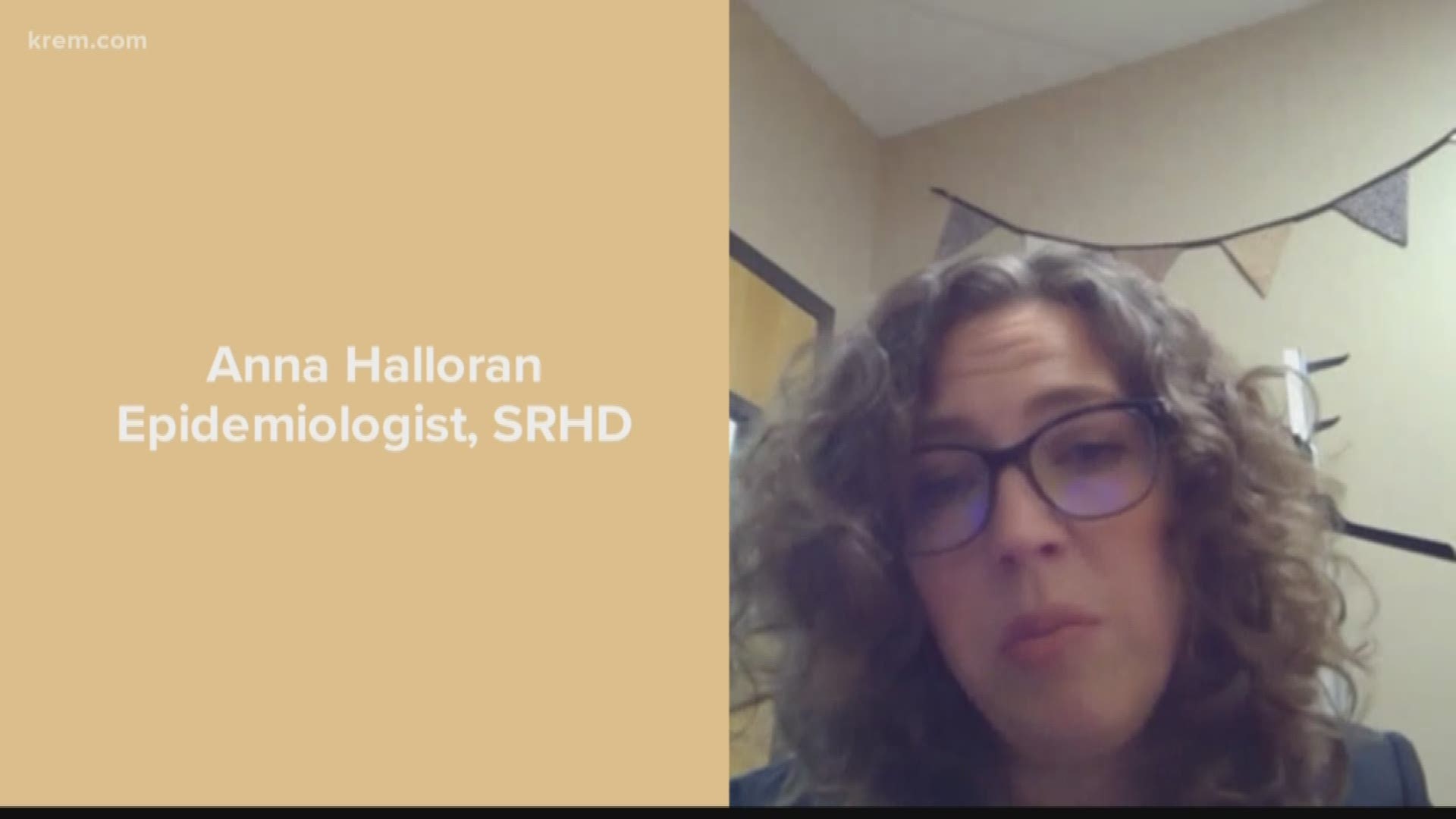SPOKANE, Wash. — The Inland Northwest is closing in on almost three months of shutdown from the coronavirus pandemic. Since then, it's become clear that contact tracing is one of the most effective tools at limiting spread of the virus.
The Spokane Regional Health District has a team of 12 to 15 specialized contact investigators who are trying to track possible exposures, including epidemiologist Anna Halloran.
She says the contact tracing process begins once a person receives a COVID-19 diagnosis, usually from a private health care provider. Those private providers are required to report positive test results to the local health district.
"So we'll call the person on the phone," Halloran said. "We'll talk to the person about their illness, confirm when their symptoms started, because that gives us an idea of when they were infectious. And then we'll talk to them about their living situation, or any other individuals who could have been exposed to them while they were infectious."
"When people have symptoms, they're infectious for 48 hours before their symptoms start, until 10 days after their symptoms start," she added.
Halloran also said that it is sometimes nearly impossible to figure out where somebody picked up the virus. But other times it can point to a potential outbreak setting they weren't aware of before.
"You're relying on people to tell the truth and give us complete information. And some people may not be willing to cooperate with us and give us complete information," she said. "Other people may have the issue of time and memory. Sometimes you have to go back a week, and it's really difficult to remember exactly where you were on certain days and who you were with."
For the most part, Spokane Regional Health isn't as concerned about quick, casual exposure to an infected person in places such as grocery stores and pharmacies. Halloran says it's the more prolonged exposure that dramatically increases a person's chance of getting sick. However, as stores and restaurants begin to reopen, she is worried about the potential for more severe spread.
"I think about that a lot. And it's hard to think about how many people are likely to get sick as people start relaxing their social distancing," Halloran said. "And that is the thing we're trying to avoid, is people getting sick, and being hospitalized, and people dying. Those are things we don't want to see. "

